Greetings, book and treat people! I am so heartbroken. I am so angry. I am so safe. I’ve been thinking a lot about my first forays into activism as a teenager, during the Iraq War. I’ve been thinking a lot about who that girl was. There was so much she didn’t know. There was so much she got wrong. She was fierce and loud and full of hurt and rage. She was also full of hope—the kind of hope 37-year-old me has trouble imagining. I don’t think hope is a prerequisite for action. I don’t think hope has to be the thing that motivates you. I don’t think it’s the only way to enter into the struggle, to dream a different world. I don’t.
And, also, yet: these last few weeks have challenged my beliefs about hope. I give this to you as an offering. Nothing you know or believe has to remain fixed. I am not static. We are not static. Sometimes I think this is what it means to remain soft: to stay open to tiny and seismic shifts in our hearts and brains and bodies.
When I shared my end-of-the-month reading reflections in September, many of you reached out to say how much you appreciated reading them. So here is what I read and saw and thought and felt in October. Here are the places my heart broke and the words I used to patch the cracks.
On October 1st, I swam in the lake. It was blue and shimmering and cold.
In the mornings, Nessa and I walked along my favorite road. She sniffed around through piles of decaying leaves, munched on tufts of grass. I watched the colors blossoming in the changing trees.
The October mist and October light took my breath away, again and again.
The first book I finished in October was Monica Youn’s latest poetry collection, From From. I loved it. It also feels like I read it 10 lifetimes ago, and I don’t remember much about it. My friend Surabhi wrote a fantastic review.
A dear friend came to stay for the weekend. We walked and talked and worked on a puzzle. I made us breakfast. Making breakfast for and with people I love: always perfection.
I spent a glorious Sunday afternoon finishing Quicksand by Nella Larsen. The edition my library sent me was from the 1960s. I loved the weight of it in my hands, and the plainness of the cover: no blurbs, no stickers, no art. It’s a remarkable book about how hard it is to build a life outside of societal norms and expectations. It’s unbelievably sad. The heroine, Helga Crane, is smart and angry and knows herself. She reminds me of Jamaica Kincaid’s heroines—Lucy and Annie John. I love untangling the queer undertones in Larsen’s work. I’ll review it in depth at some point.
The leaves started changing in earnest, which is my favorite thing that happens in the universe.
I started taking daily pictures of leaves again, which is a joy practice, a small thing that reminds me to pay attention to beauty.
I listened to Record of a Spaceborn Few by Becky Chambers, the last book I hadn’t read in the Wayfarers series. I didn’t love it as much as The Galaxy, and the Ground Within, but I still loved it. Galaxy is “let’s have fun with aliens!” Spaceborn Few is “let’s ponder human philosophy!” I found it quite moving, especially the discussions of generational change.
I took my last swim of the season in my beloved river. It was cold and golden. I wrote a little word-and-photo poem about it.
I haven’t paid attention to baseball in years, but I do love it. It’s the only sport I truly love. It’s math + poetry. A perfect blend. So when I learned that Cat Sebastian recently published a historical baseball romance novella, I happily gobbled it in one evening. Luke & Billy Finally Get a Clue doesn’t have much baseball in it, but it’s lovely. I may start listening to the Red Sox on the radio again next year.
My mid-October swims were some of the best swims I’ve had this year. One morning, I swam out to the middle of the lake, completely surrounded by mist and clouds. I disappeared my body into the water, which always holds me.
During my last week of daily commutes to the lake, I threw myself a short audiobook marathon. I listened to a bunch of audiobooks, all under four hours, that I’d saved in my various audiobook TBRs.
First I listened to Sipping Dom Perignon Through a Straw by Eddie Ndopu. It has a narrow scope, which isn't a criticism. It's an incredibly detailed account of the institutional ableism Ndopu faced while getting his masters at Oxford. It’s appalling, but he does such a good job laying out the endless everyday excruciating barriers disabled people face (especially in academia). I would have happily read a longer memoir about his life—I loved his humor and fabulousness—but he does what he's doing here very well.
Next I listened to Leanne Betasamosake Simpson’s story collection Islands of Decolonial Love. At first I was disoriented. I didn't know if I was listening to poetry or not, and I wasn't sure if all the sections were part of longer stories or entirely separate. But when I let that go, it became a series of beautiful meditations and moments—tender, funny, breaking, mending. I'd like to revisit it in print because there were so many gorgeous lines.
I mostly didn’t understand what was happening in Dreaming of You by Melissa Lozada-Oliva, but I loved it, especially the poetry. Sometimes I read a novel in verse and it seems like the verse isn’t doing anything for the story. But these poems are brilliant. Funny, smart, weird. Lozada-Oliva reads it and her narration is A++.
I probably should have DNFed Whereabouts by Jhumpa Lahiri, because it was so boring. But it was also so short. In it, a woman walks around an unnamed city (Rome?) and…ponders, I guess. I remember nothing about it. I found it bland and meaningless. Maybe you will love it!
I finished my short audio marathon with Scratching River by Michelle Porter. It was a tough read. It’s a memoir about Porter’s disabled brother, and the institutional abuse he survived, as well as a story about the dispossession of Métis people throughout Canada’s history. Porter is a poet and writes beautifully. It’s a fragmented book, with many strands of memory and ancestry. I wasn’t in the right headspace for it. I did read Porter’s new novel, A Grandmother Begins the Story, earlier this fall, and reading this memoir definitely deepened that book for me. I reviewed it here. Part of it is told from the POV of a bison named Dee. I would do almost anything for her.
On October 12th, I took my last (official) swim of the season, marking 63 consecutive days of swimming. I thanked the lake.
I listened to A Man of Two Faces by Viet Thanh Nguyen as Israel began bombing Gaza. Listening to Nguyen speak about the Vietnam War and its reverberating traumas as I watched journalists in Gaza post videos of neighborhoods reduced to rubble, as I read about whole families murdered—it felt like being severed. Only I am not severed. I am whole. This is some of the best writing on American complicity and global imperialism I’ve read in a while. Nguyen’s understanding and analysis of cycles of colonial violence is brilliant, by which I mean it’s eviscerating and visceral.
On October 15th, I finished How to Read Now by Elaine Castillo. I’d been reading it slowly for weeks. It woke up my brain. I didn’t think every essay was mind-and-world-opening, and that made me love it even more. It’s exciting to wrestle with books by writers I admire. The simplest (it’s so complicated) takeaway: reading is not just about books. Reading is how we see, enter, and understand the world. I have been thinking about this constantly over the past three weeks. I’ll leave you with this:
White supremacy is a comprehensive cultural education whose primary function is to prevent people from reading—engaging with, understanding—the lives of people outside its scope.
Every day, I walked. I gasped a lot. “Oh! The leaves!” I said out loud to myself, over and over.
Walking on the ridge with Nessa, the beauty settling inside me, I listened to What Storm, What Thunder by Myriam J. A. Chancy. I’ve been hearing amazing this about this book for a while, from some of my favorite readers. It’s very good (and devastating). I can see why people love it. For some reason, it didn’t settle inside me. Maybe it’s because I was starting to lose the ability to focus on reading, and even though it’s about things that are on my mind—colonialism, imperialist violence, the massive failures of international aid agencies—my brain kept bouncing away. I’ll definitely be reading more of Chancy’s work, though.
Sometimes, on our walks, Nessa and I passed through tunnels of light.
I stepped away from social media for a weekend to read and cry and think and grieve and be present in my body. I read Good Grief, the Ground by Margaret Ray and these lines broke me open: “This is the same world / it's always been, where lumbering monsters / emerge after years of silence / to take up space and give us pause.”
I found some joy in The Prospects by KT Hoffman, the trans baseball romance of my dreams. Is it the best romance I’ve read this year? Probably. It’s out next April, and you should pre-order it.
I memorized ‘Meditations in an Emergency’ by Cameron Awkward-Rich.
On a whim, I switched from Spanish to Arabic on Duolingo. I like the way it challenges my brain. I like how it feels as I start—slowly—to recognize letters in a different alphabet. I like the way it opens me to newness. I’ve been doing lessons every day. Little pockets of word joy. Little bouts of brain joy.
I kept picking up books and putting them down. I started Moby-Dick on October 1st with the intention of reading it in a month. I got to page 170 before I lost the ability to focus on it. I was (and still am) so into it. It’s been a joy, reading it and thinking about queerness, the ocean, literary history, race and racism in literature. I’m not sure when I’ll pick it up again but I know I will.
In the meantime, I requested dozens of books by Palestinian authors and books about Palestine from my library because it’s one of many ways to look, to witness, to weave.
I already had Rifqa by Mohammed El-Kurd on my to-read-soon shelf so I read that first. It’s a beautiful, devastating, rageful collection about surviving the impossibility, the brutality of displacement, exile, occupation, genocide. El-Kurd’s poems are clear and dancing; they cut and sing. They are liberation poems, survival poems, grief poems, everyday poems, poems of despair held, despair transformed. “I am learning how to pour gasoline on discourse,” El-Kurd says in ‘Laugh’, and this line is still ringing inside me.
I thought I’d taken my last swim of the season, but on October 25th, I went to the lake and gave myself to the water. Water always holds.
I listened to Except for Palestine by Marc Lamont Hill and Mitchell Plitnick. It’s a short, extremely measured, and rational book about the failure of the American left to take a stand on Palestine, and the context behind it. I wrote a bit more about it here. I recommend it.
I cried so much.
I walked on the ridge through the October glory of my beloved home. How outrageously lucky I am. How outrageously lucky.
I read The Earth in the Attic by Fady Joudah, a Palestinian American poet and doctor. Many of these poems are about healing and its impossibility—how to work the wounds closed, how to keep stories alive in the midst of ongoing suffering, how to be a healer, tender, poet, human, in places, as places, broken open by violence. There’s a demanding lyricism and unwavering steadiness in the poems that ground them in both stark reality (here is a human, suffering, torn), and full, fanciful aliveness (here is a human, dreaming).
I read Journal of an Ordinary Grief by Mahmoud Darwish. It’s one of the best books I’ve read this year. I reviewed it in last week’s newsletter.
I made a protest sign.
I took it to a little protest in my little town. I stood next to people I don’t know to say: Free Palestine. To say: no genocide in our name. To say: we are disgusted by the actions of our government and we will not be silent about it. I was reminded how nourishing protest can be. How good it feels not to be alone in anger and grief.
While I colored in the letters of ‘Free Palestine’ on my little sign, I listened to Salt Houses by Hala Alyan, a multigenerational story about a Palestinian family who are forced out of Palestine during the 1967 War. It’s full of small, soft, tiny moments between people, wounds passed down through generations, invisible and then made visible and then hidden again, healed and reopened and healed. Alyan writes beautifully about people in their small lives, touched by big impossible horrible things. I loved it, though not as much as The Arsonists' City, which you should definitely read if you haven’t yet.
I called my reps again, and again, and again. Every day. Every day, I walked.
I read Dear God. Dear Bones. Dear Yellow. by Palestinian American poet Noor Hindi. Try breathing normally when you stubble across this in a poem: “For minutes on end I could not be indifferent / to anything.” Or this: “The persistence of everything, / sometimes it kills me.” Or this: “What’s heavy. What’s heavy? / Becomes light.” My god. The punctuation. This is an astonishing and gorgeous book that I will be holding for a long, long time.
I read Things You May Find Hidden in Your Ear by Gazan poet Mosab Abu Toha. I wrote about it here. After I read it, I opened Instagram and saw that Toha had posted a video of the rubble of his house. It was destroyed in an Israeli airstrike. How do we live in a world where I read a book that moves me, a book of sharp and vibrant poems, and then, on the same day, watch on my phone as the poet’s home is destroyed, his friends killed? The thing is, I know how, though I wish I didn’t. I know how, so I do the things I can
I spent most days in October thinking about hope. I spent most days in October holding unbearable contradictions in my chest. Walking helped.
I made a cake for my dad’s 77th birthday. I drove two hours to celebrate with my family. My nephew sang us a few songs from a musical he’s performing in (Matilda).
I walked on the ridge and the beauty cracked me right open.
The last book I read in October was A Child in Palestine by Naji al-Ali. Al-Ali was a beloved Palestinian cartoonist whose work criticizes Israel, the U.S., and various Arab regimes—anyone who contributed to the oppression of his people. This is a collection of cartoons published in various Arab and international papers from the 1960s through the late 1980s. He was assassinated in London in 1987. His work is sharp, gutting, horribly relevant. I’ll review this at some point soon.
I’m currently reading Light in Gaza, Him, Me, Muhammad Ali, and Freedom is a Constant Struggle. I’m listening to The Hundred Years’ War on Palestine. I thought I would have finished The Philistine by Leila Marshy by now, but I haven’t. I’m struggling to read more than a few pages at once so it helps to have a lot of different books going.
I’m contemplating how I might be able to get to DC for the march this weekend. I’m telling my doggo I love her, I love her, I love her. I’m muddling through work. I’m grabbing the joys, which are mostly small, and immensely precious. I’m in the mess. I’m broken open for the world and the systems of colonial oppression I benefit from and am complicit in and am working, in such small ways, to dismantle. I’m living and reading and thinking and learning and speaking and writing and crying.
November is my second favorite month (after December). Daylight savings time ends this weekend. I cannot wait. I love the early dark with my whole being. I’m ready to receive its bountiful gifts. My body craves it. My arms are open.
Catch you next week, bookish friends. As always, if you want to support my work financially, you can subscribe here.




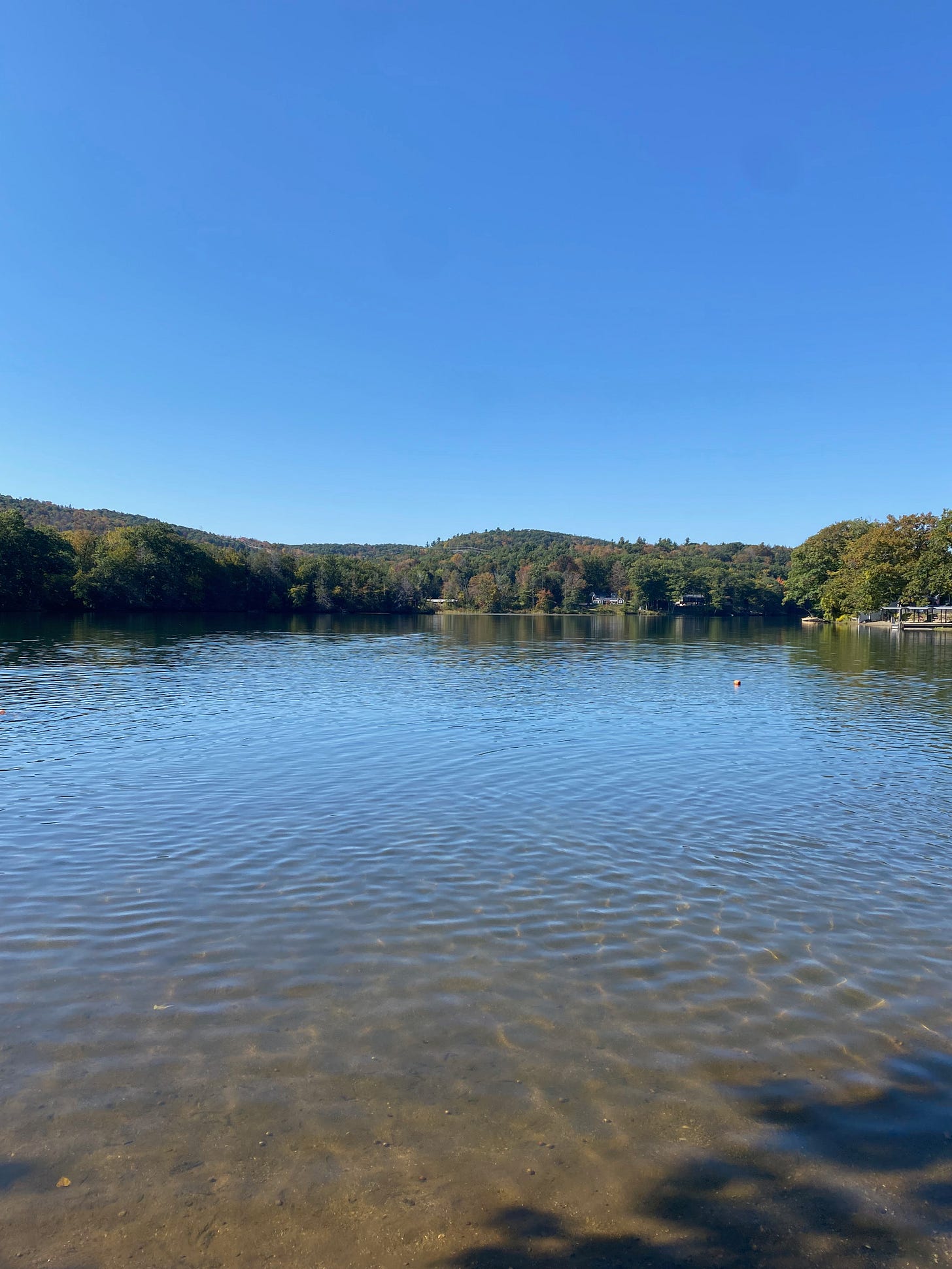
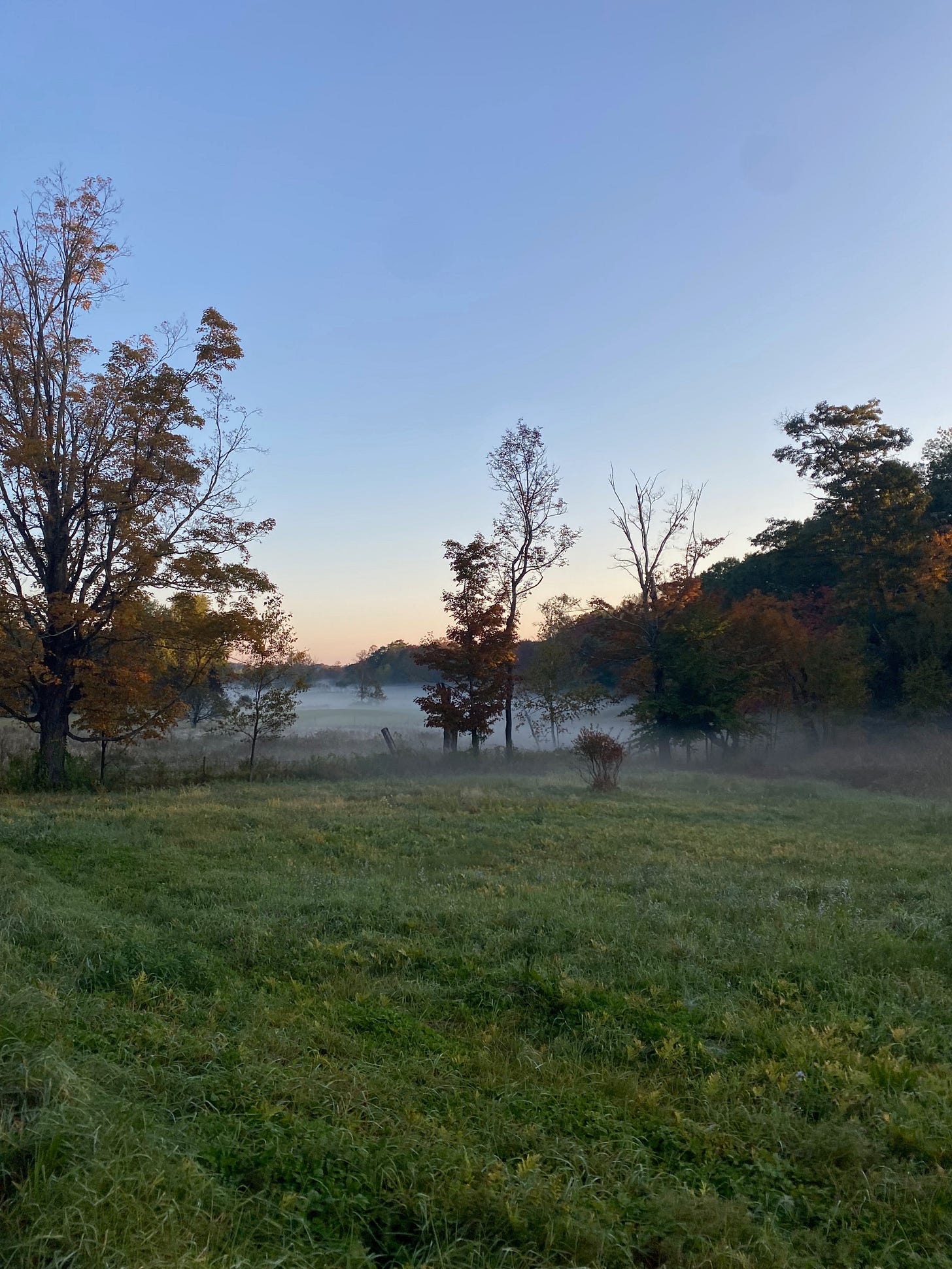
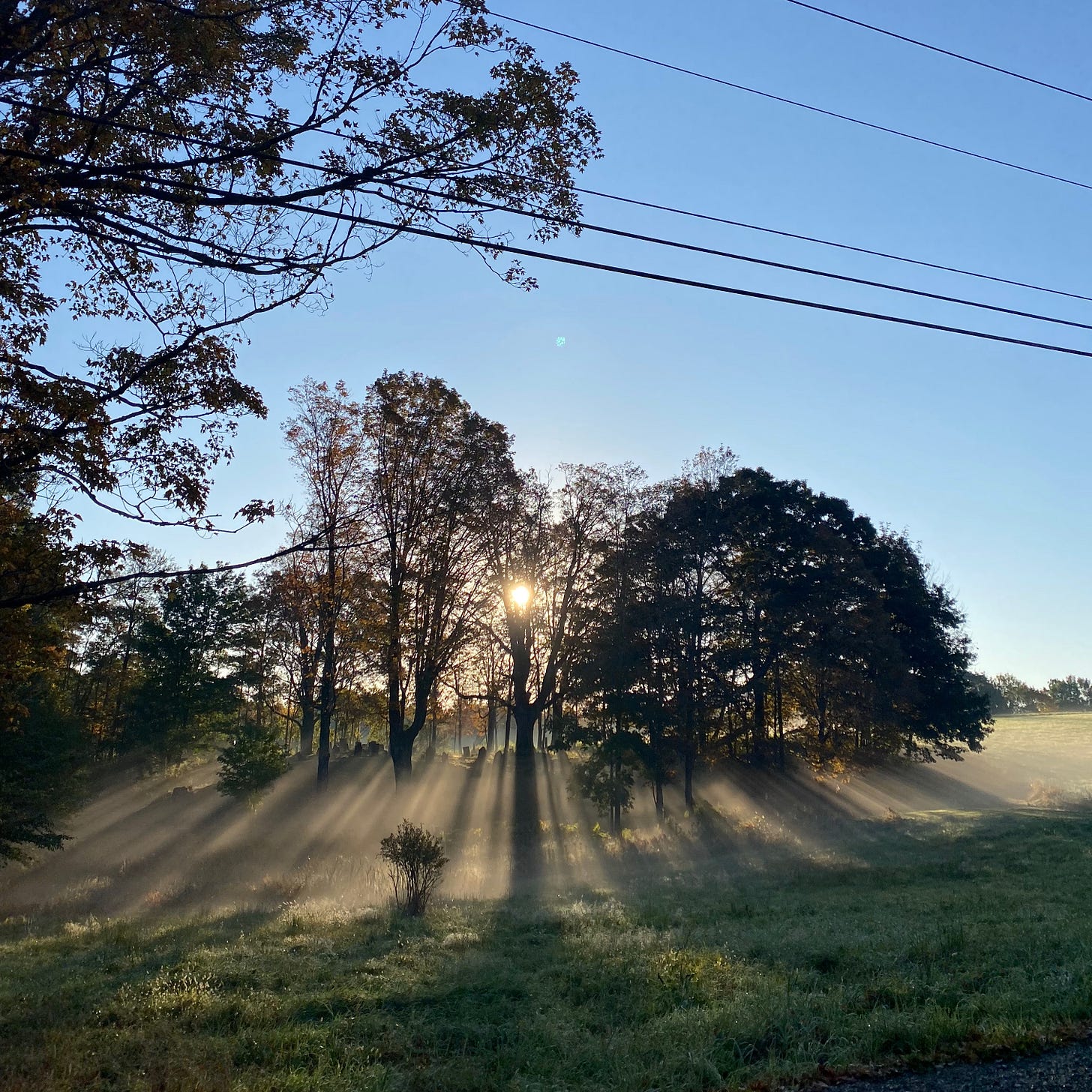
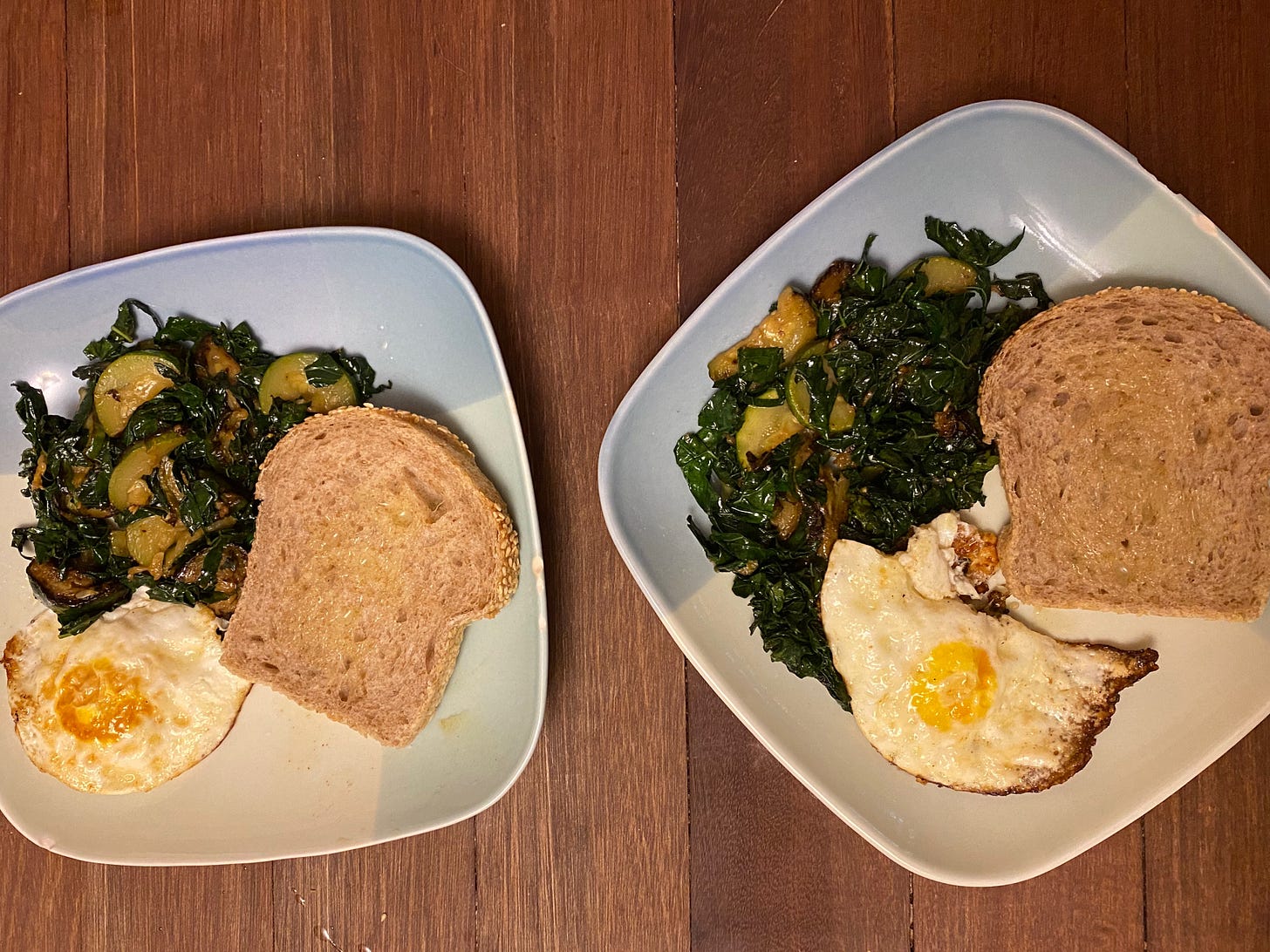
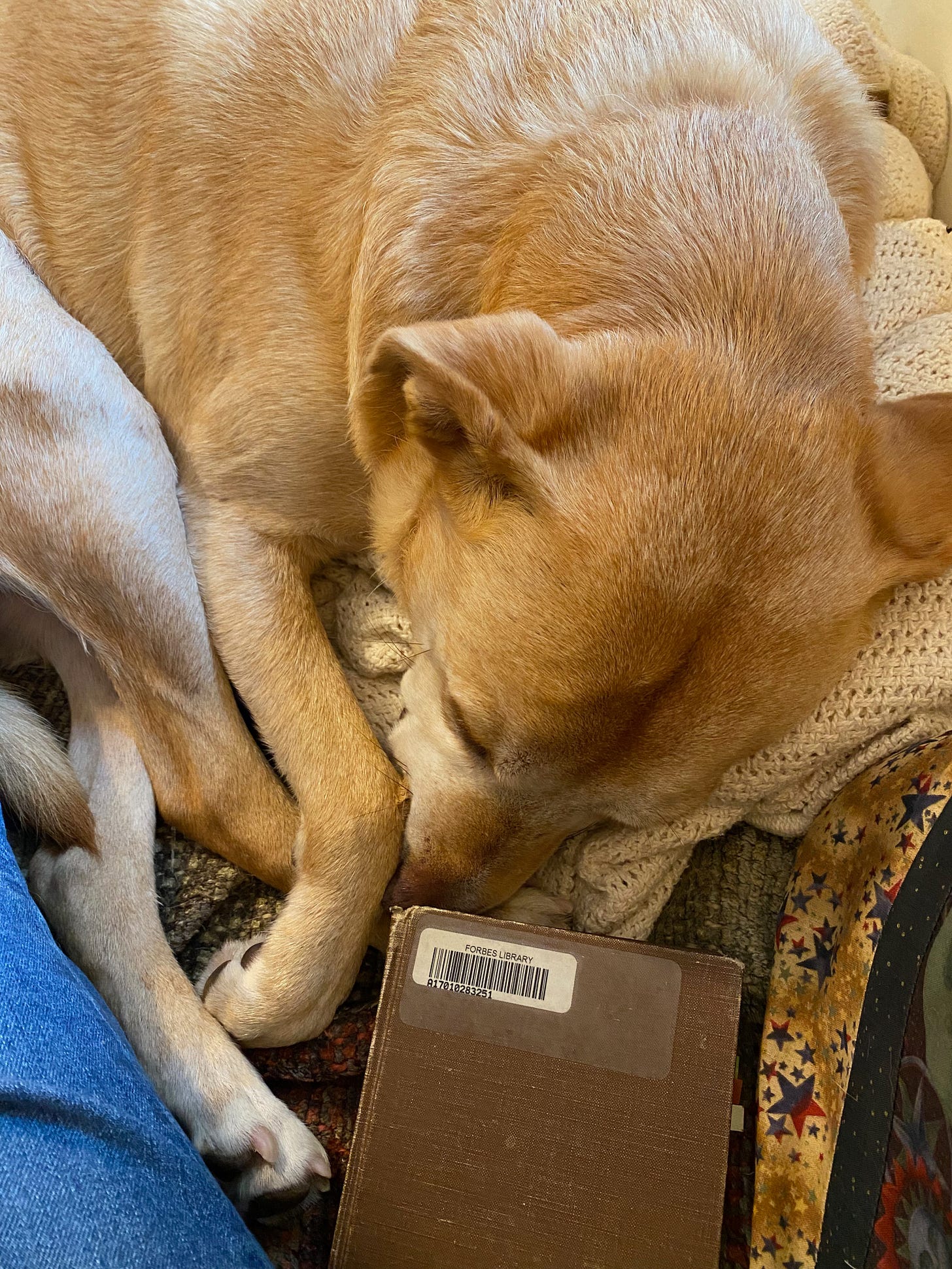
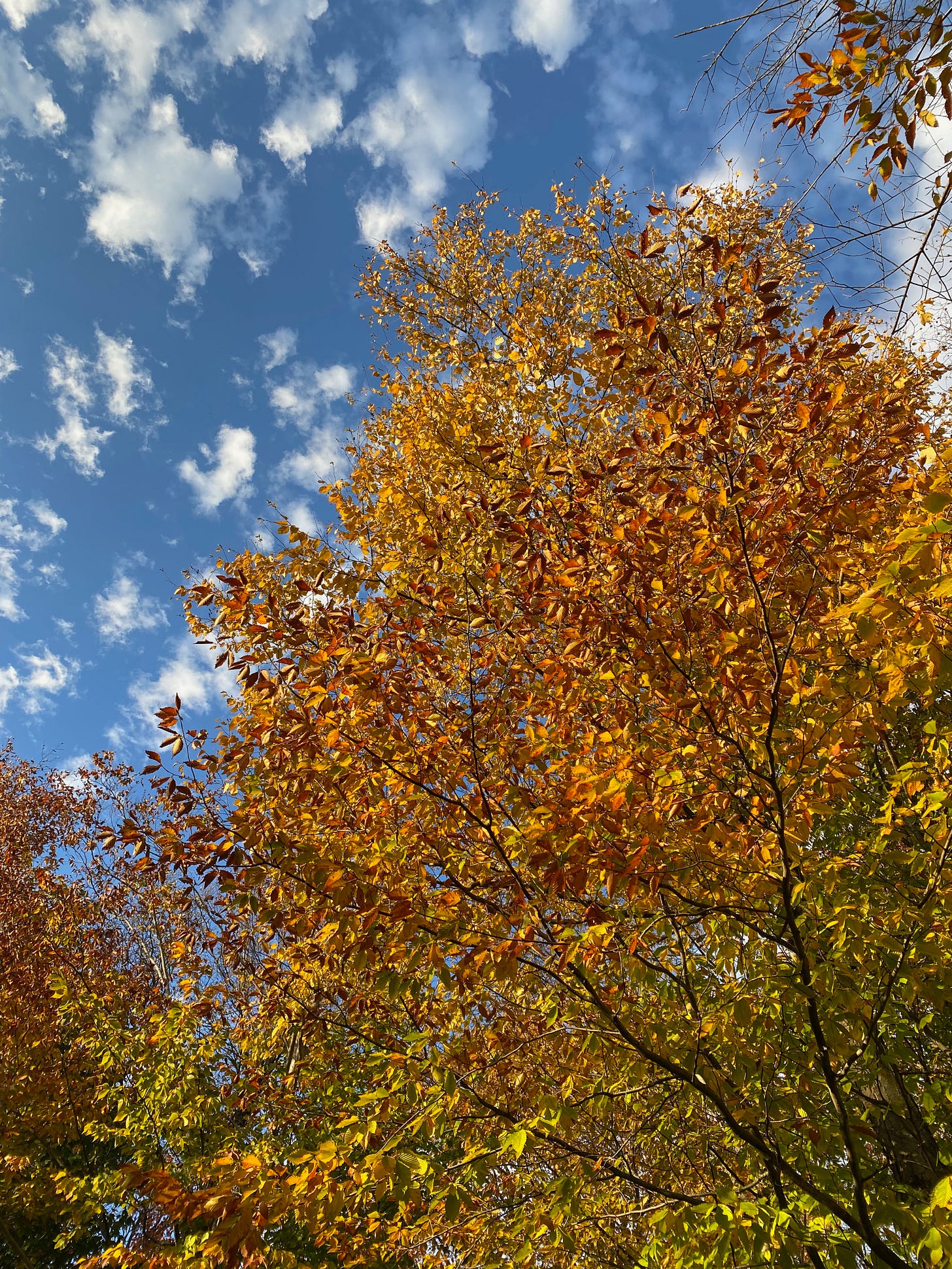
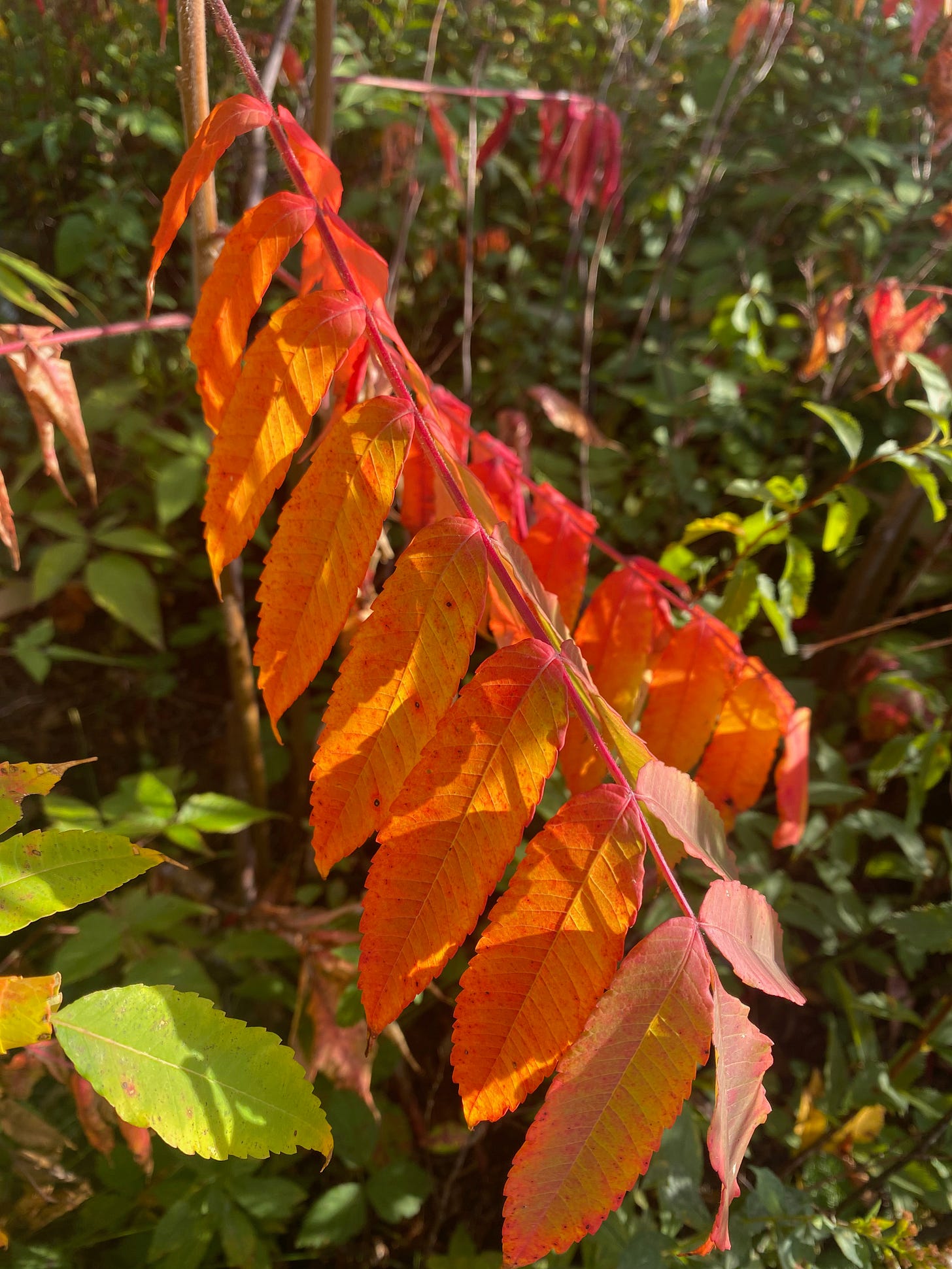
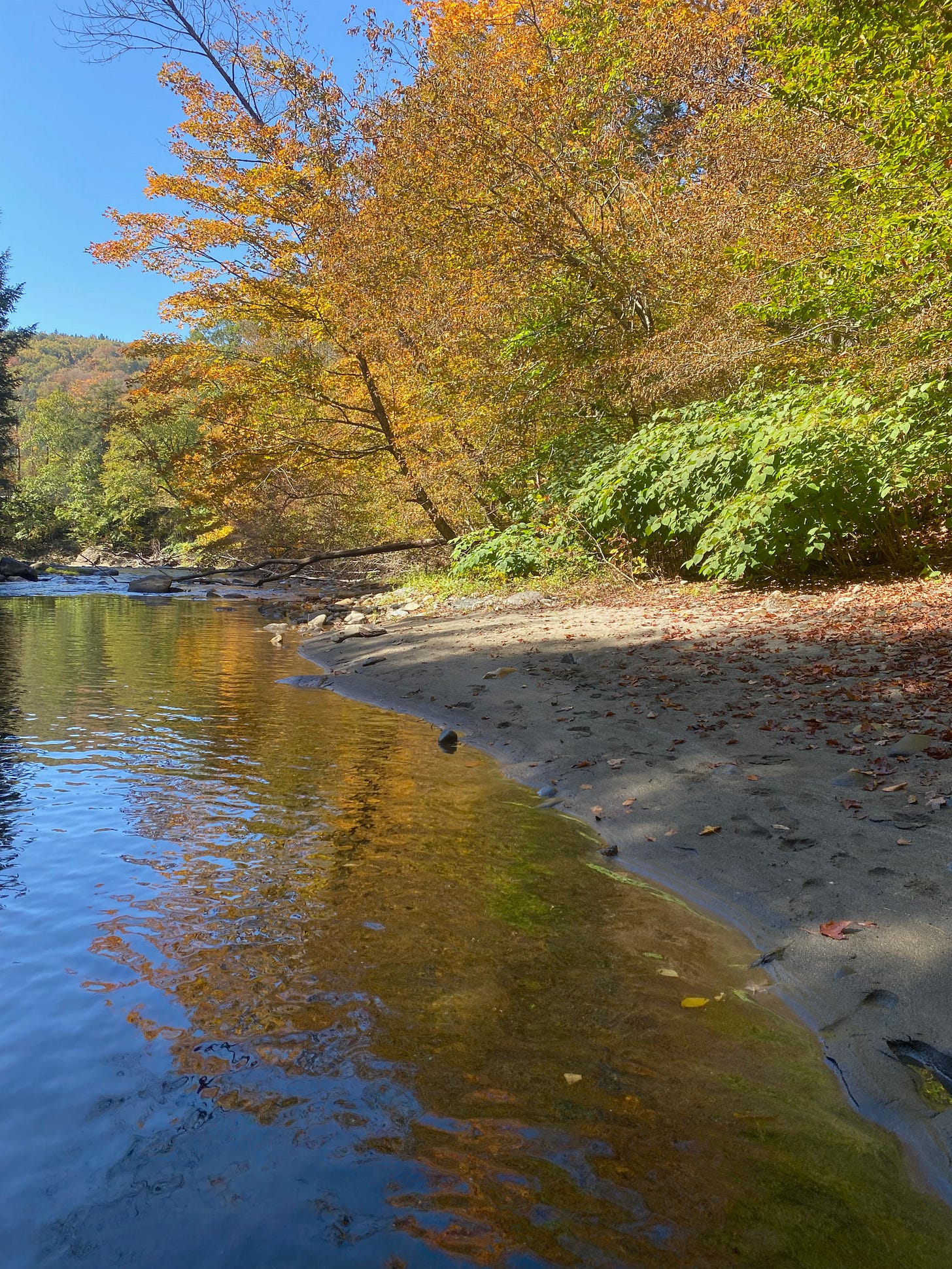
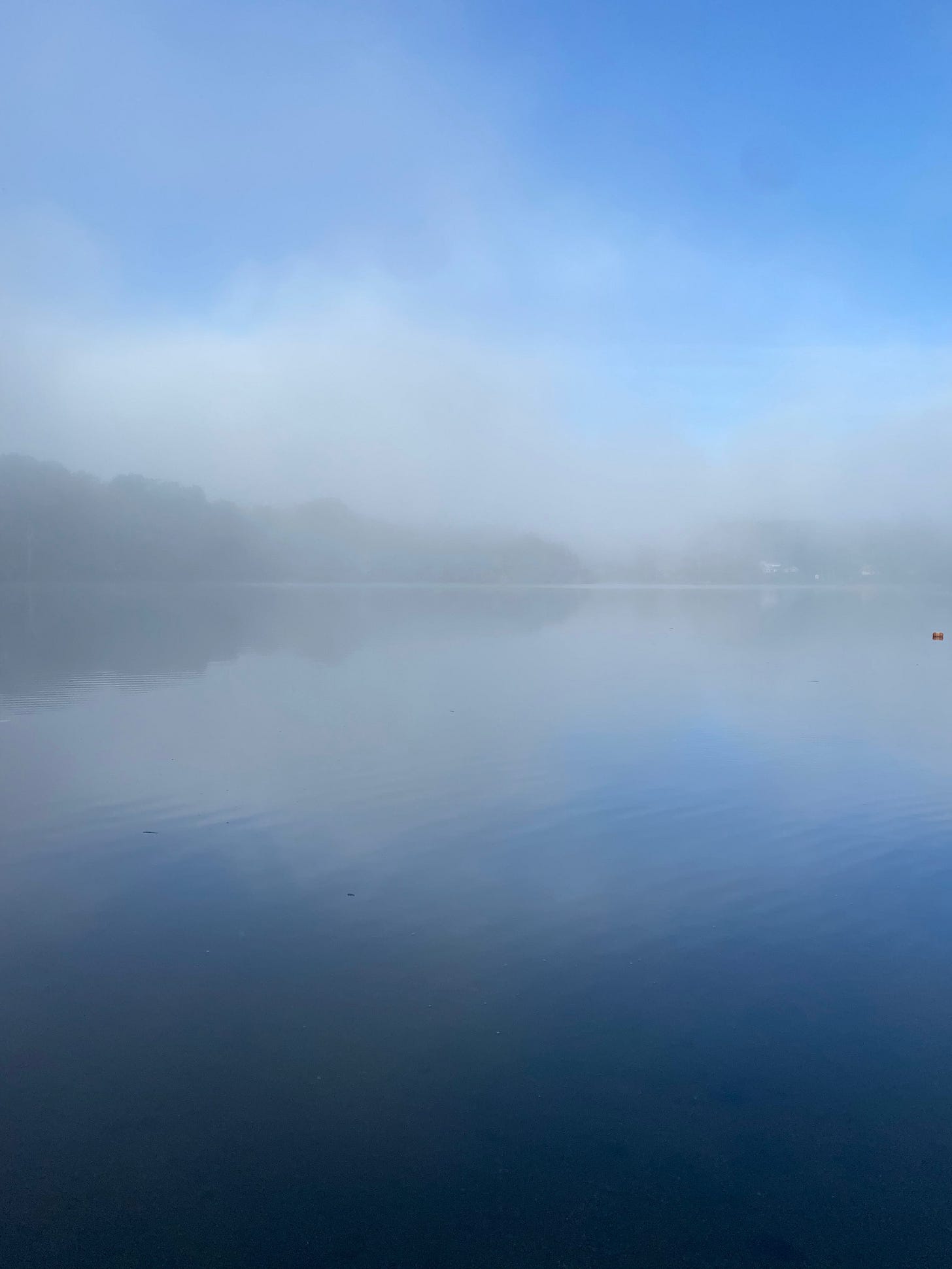
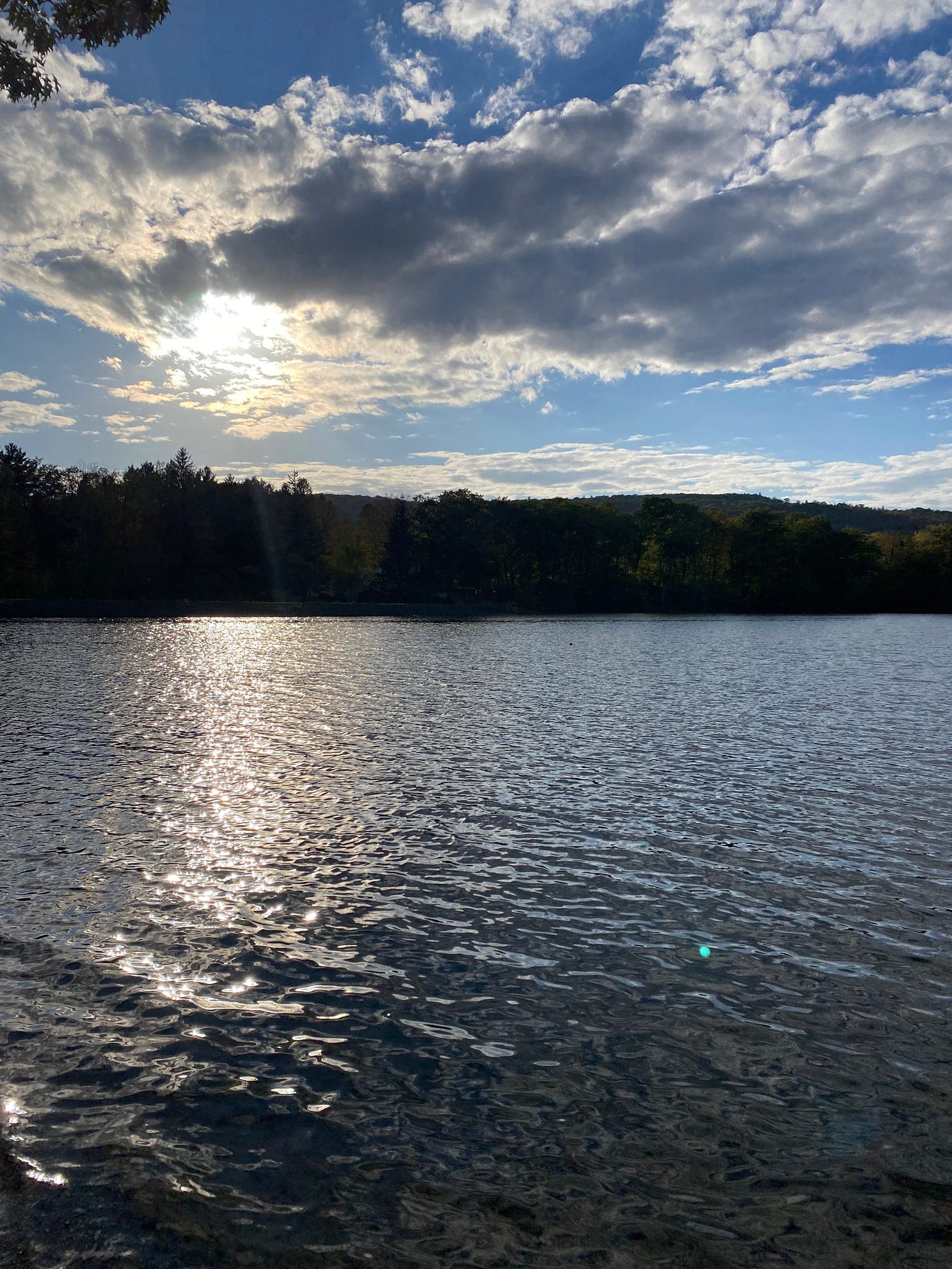
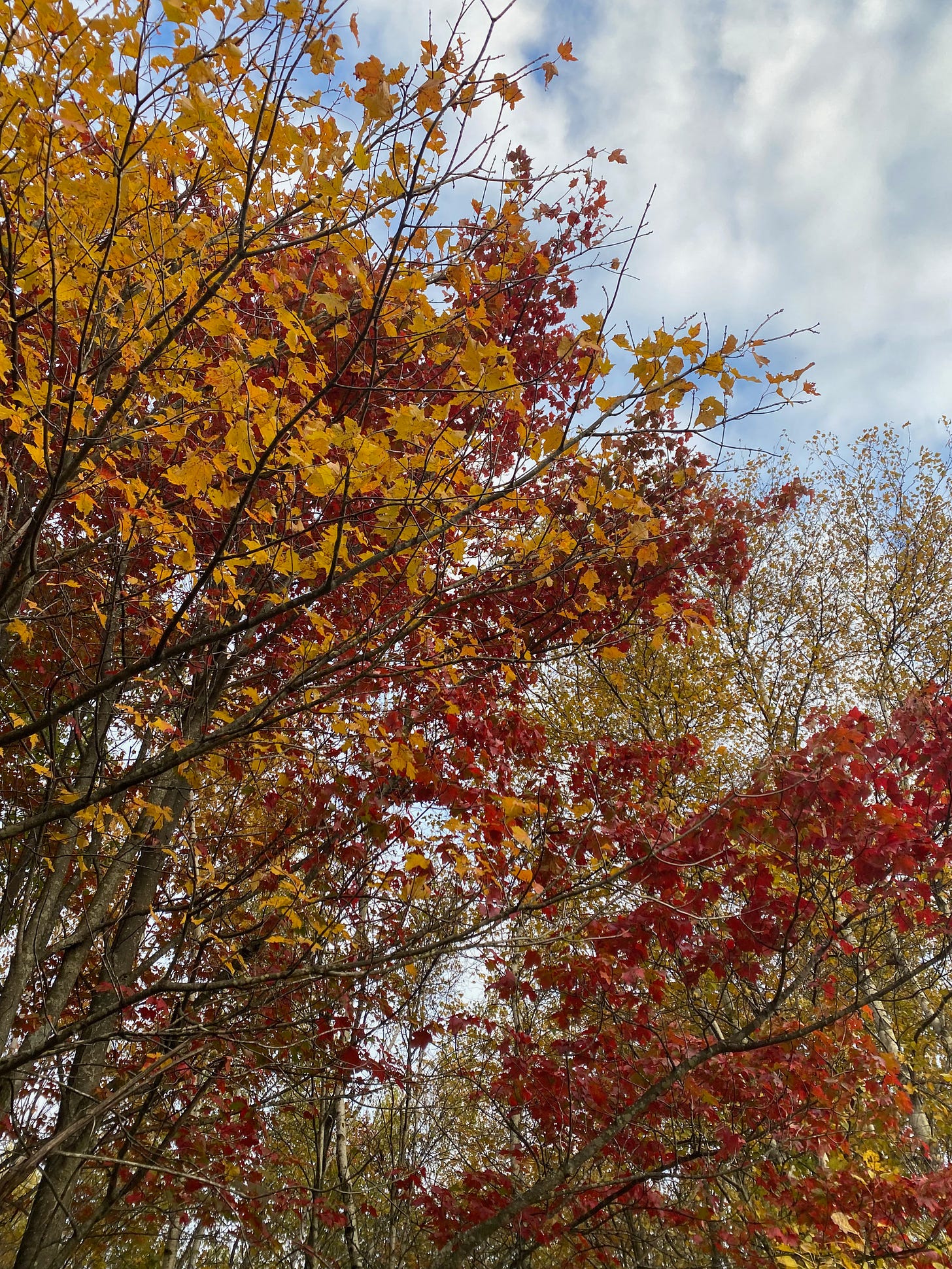

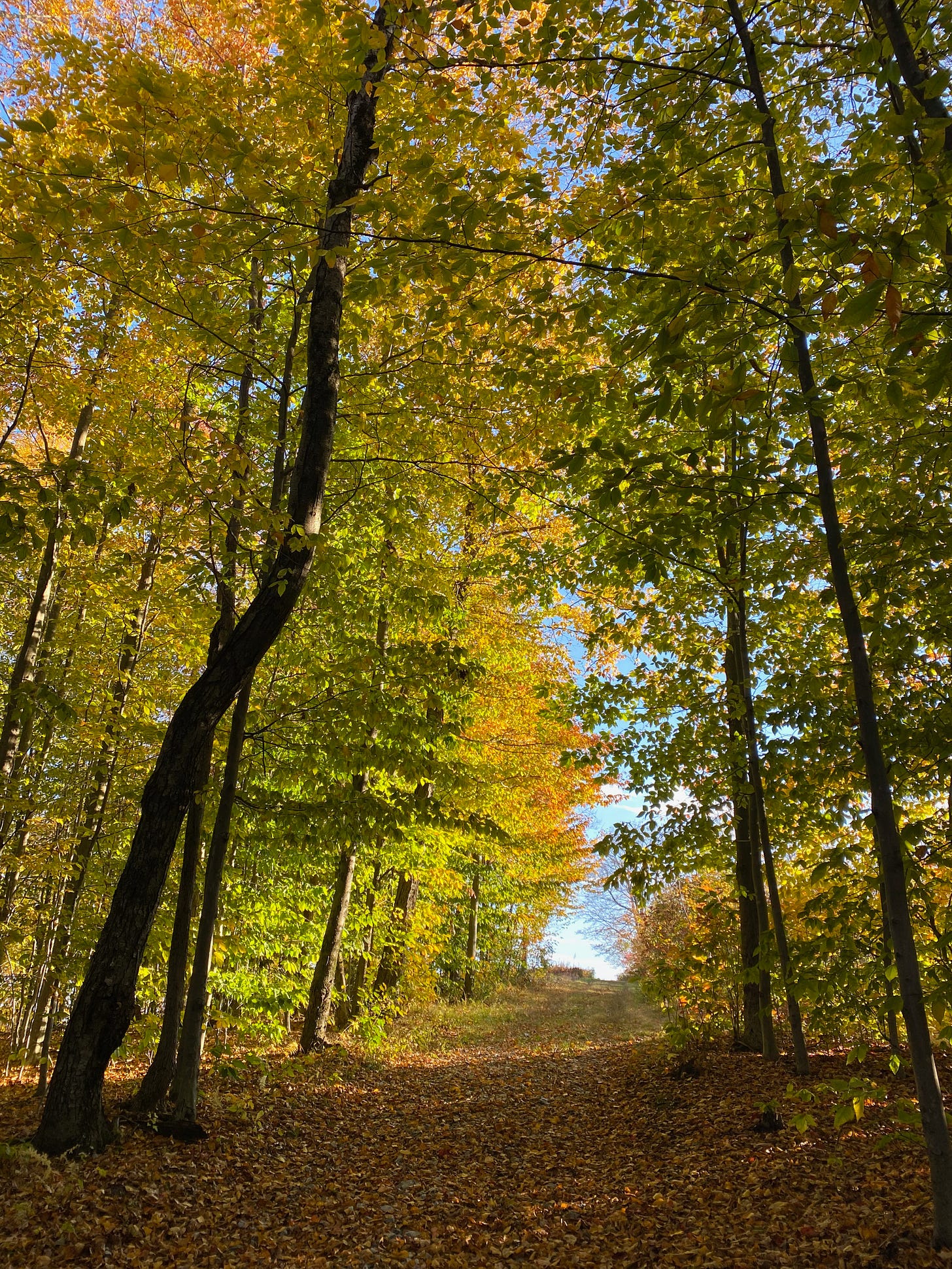
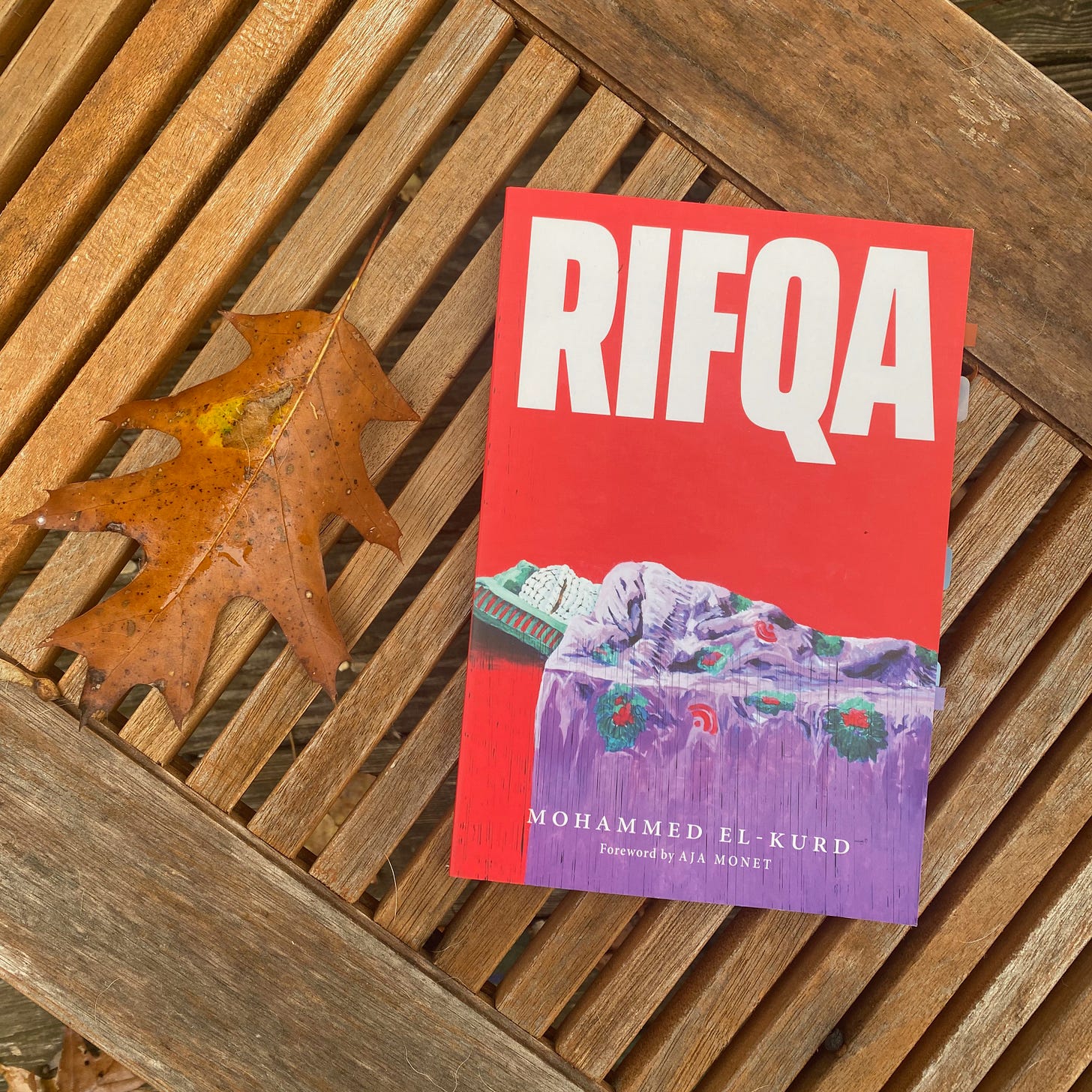
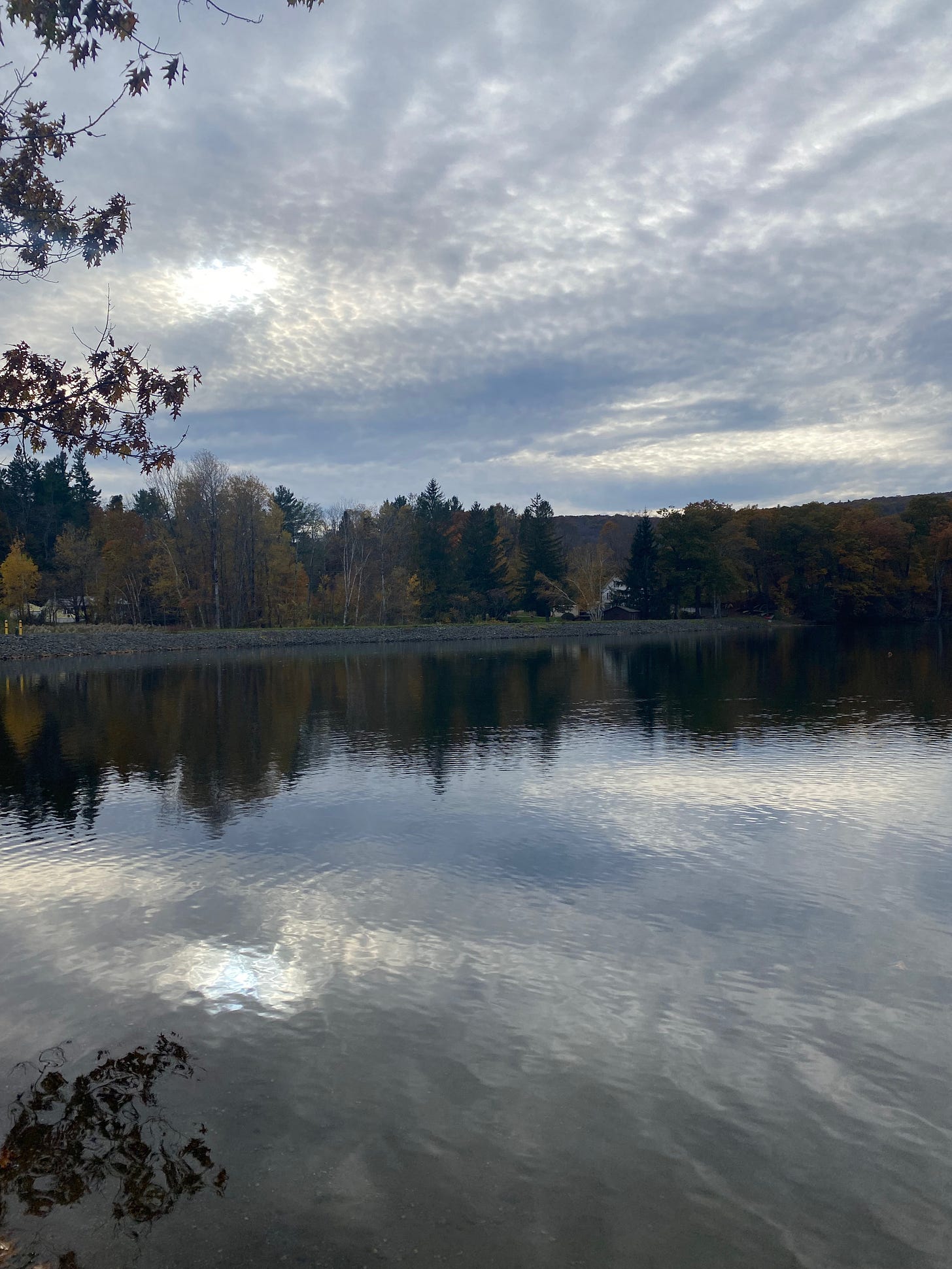

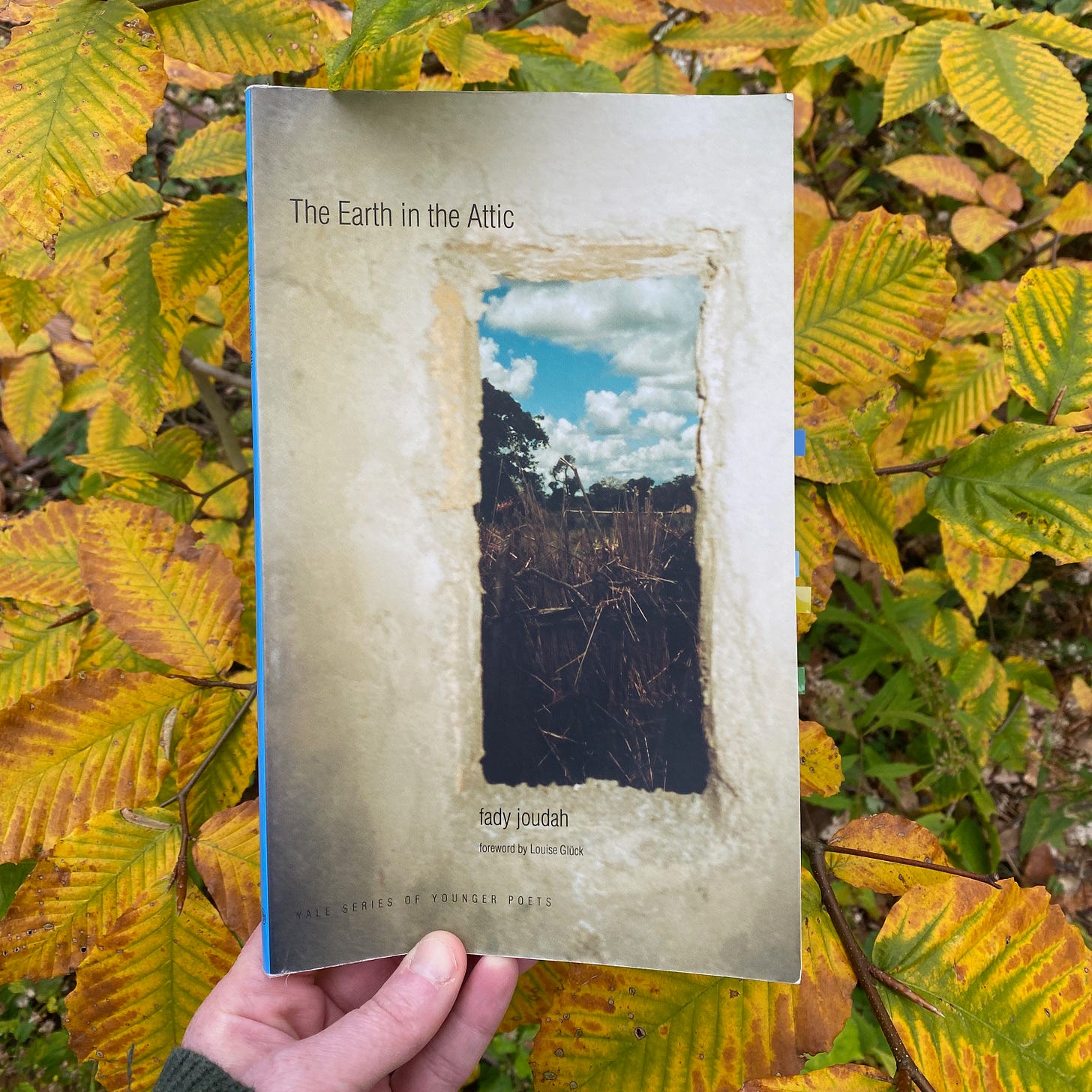
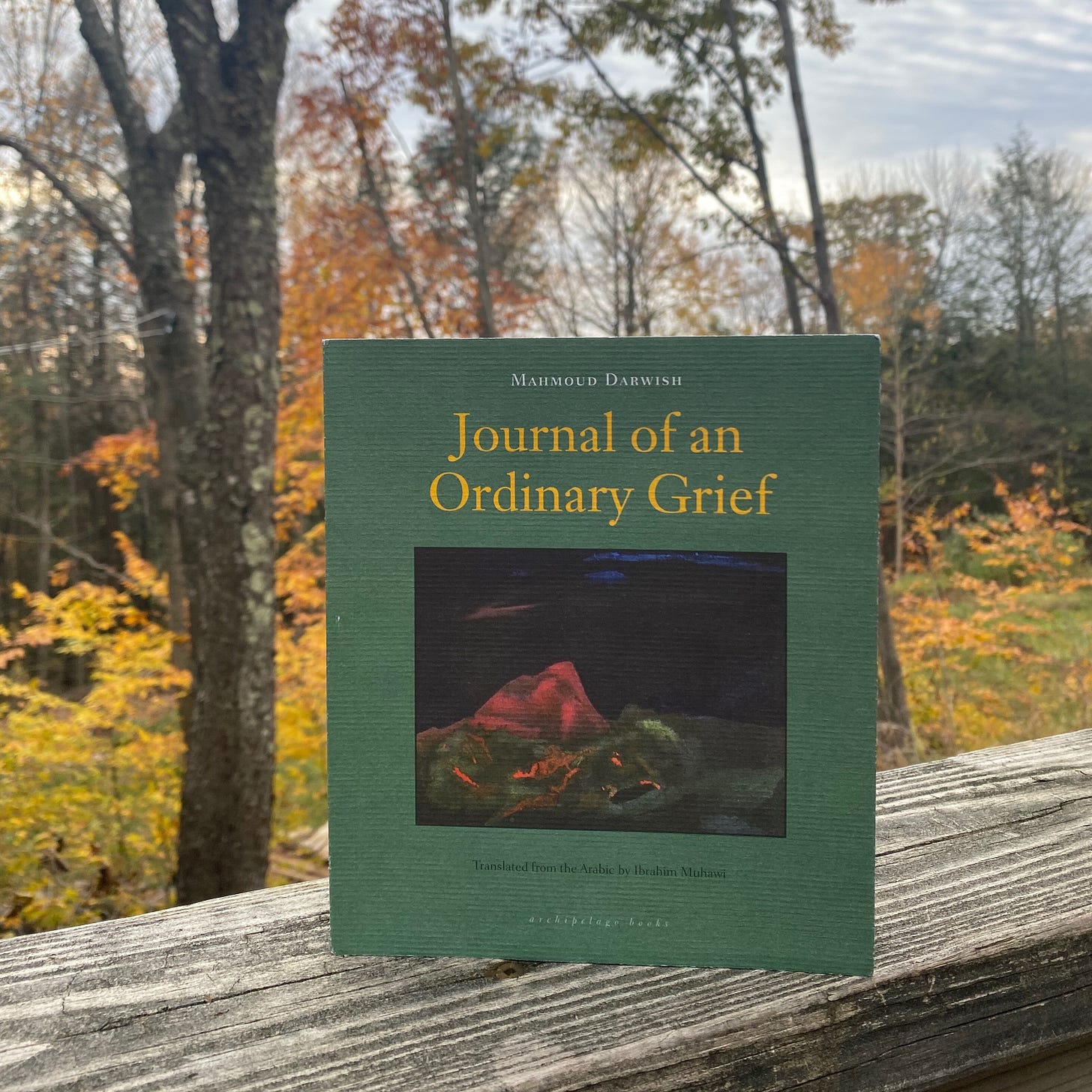
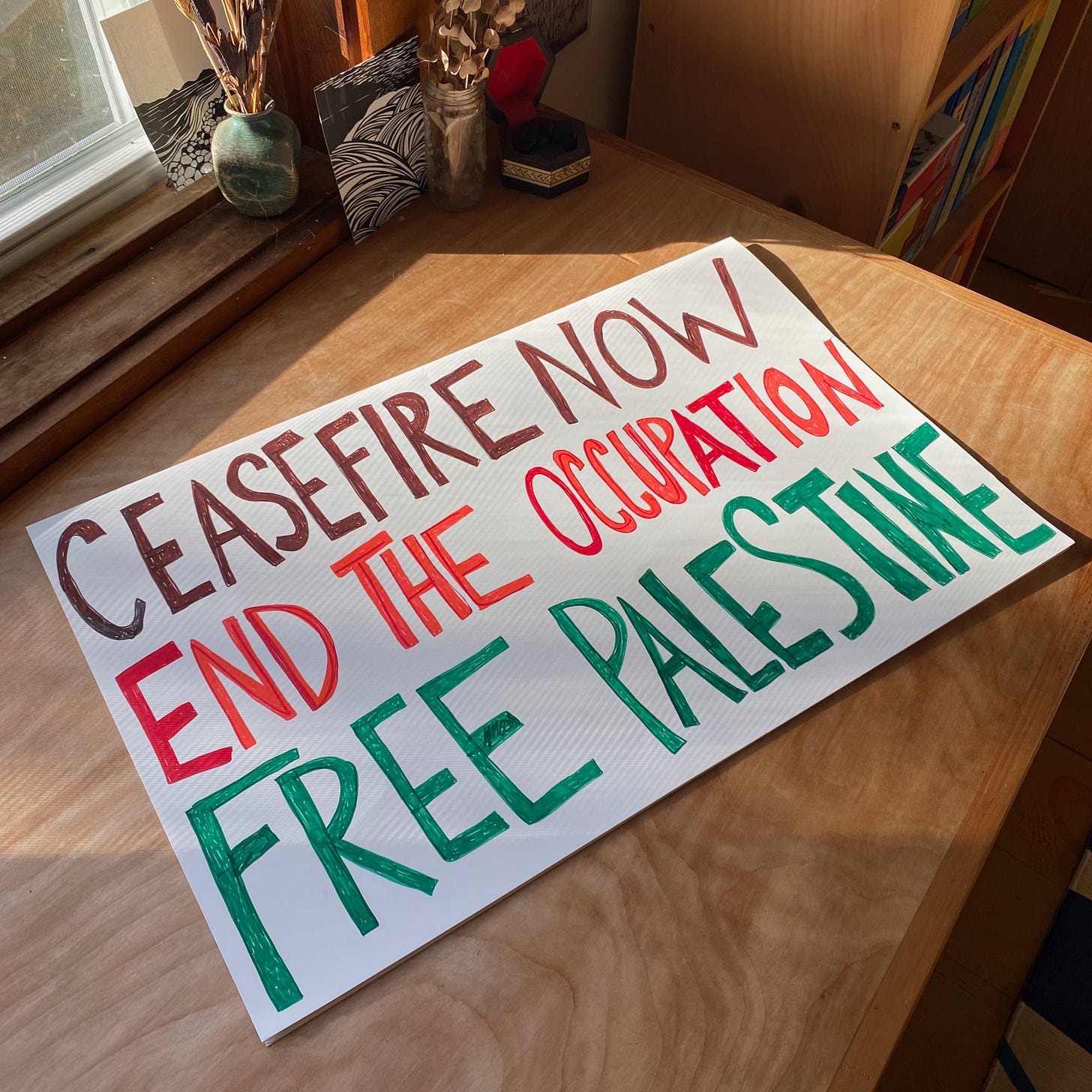
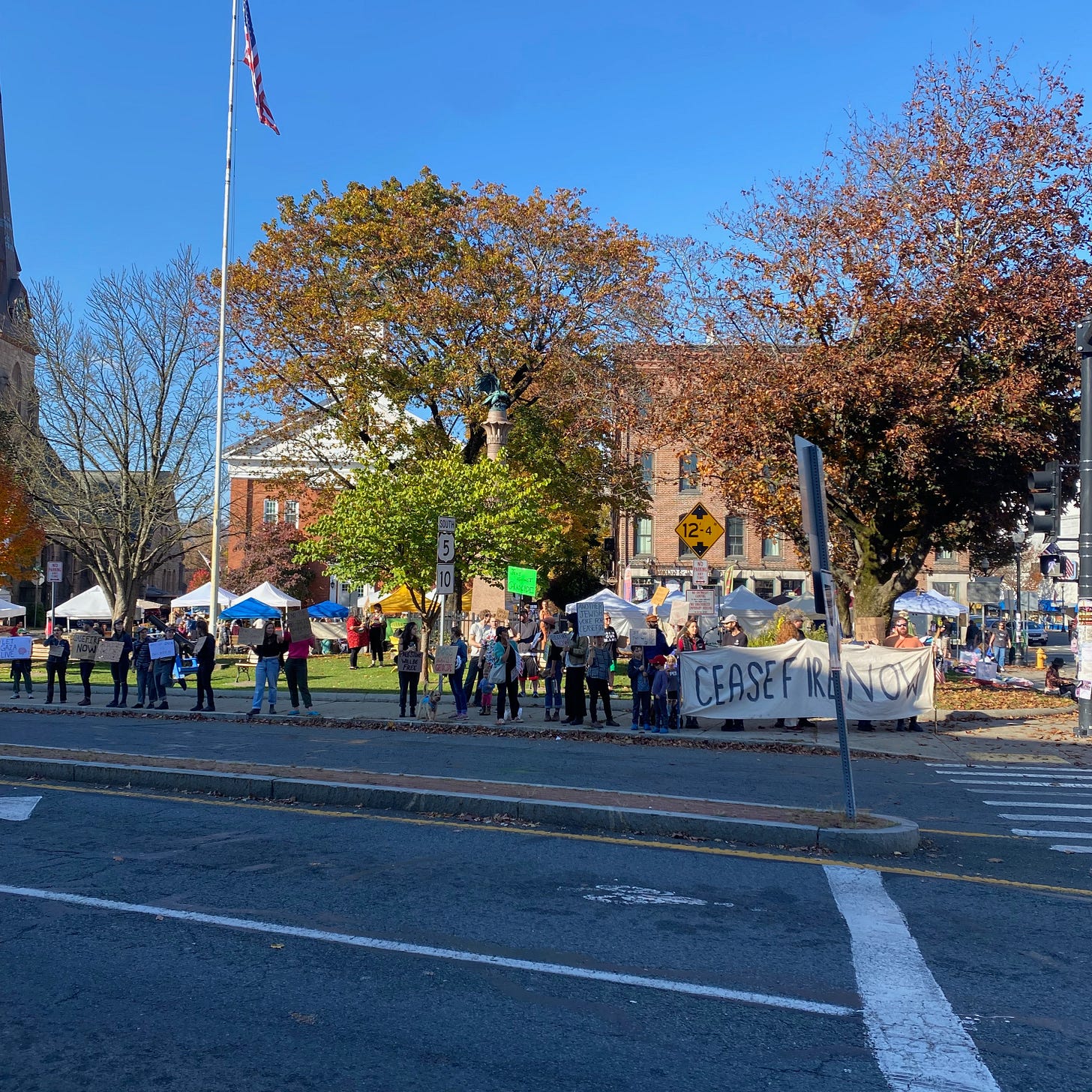
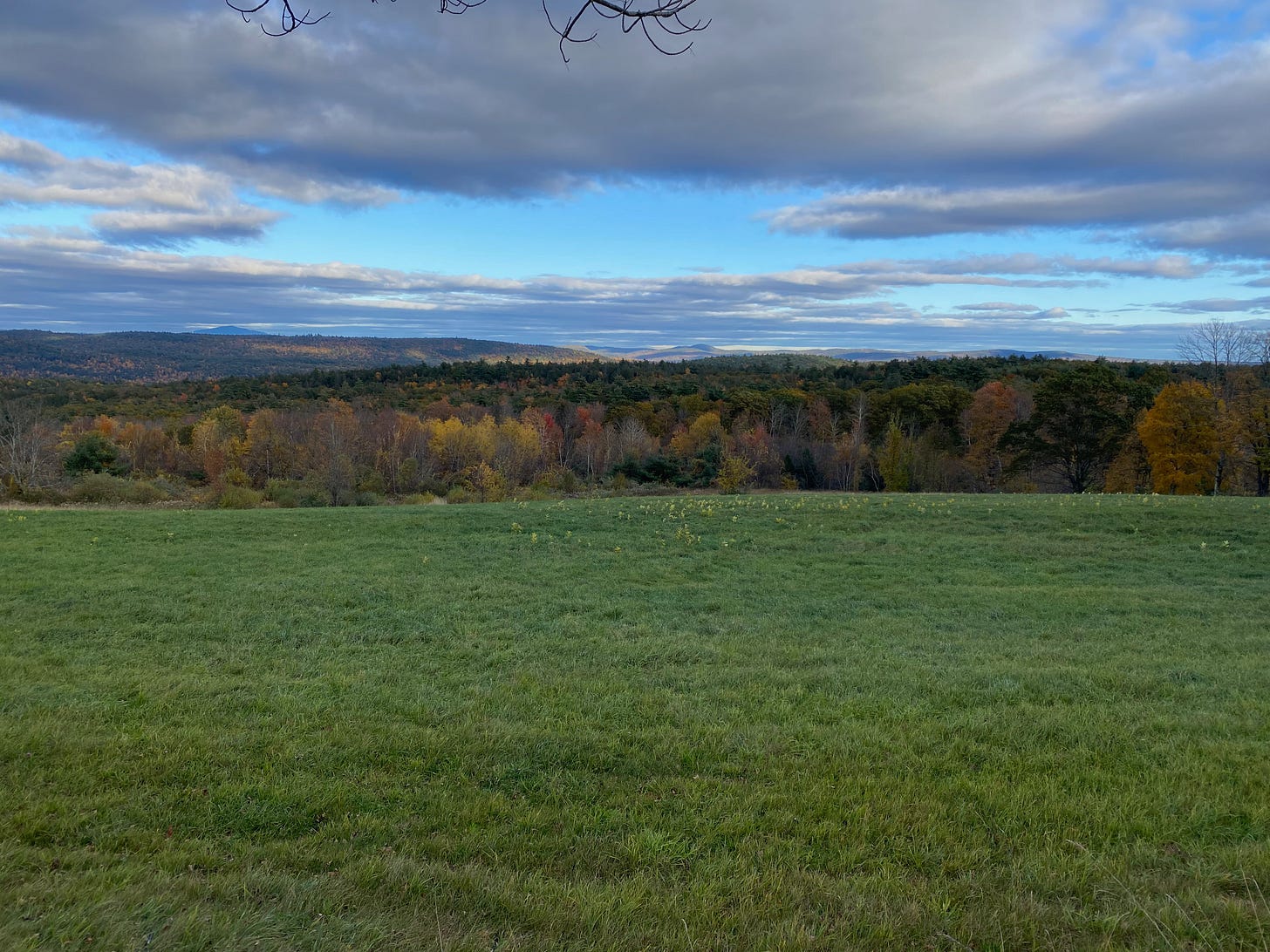
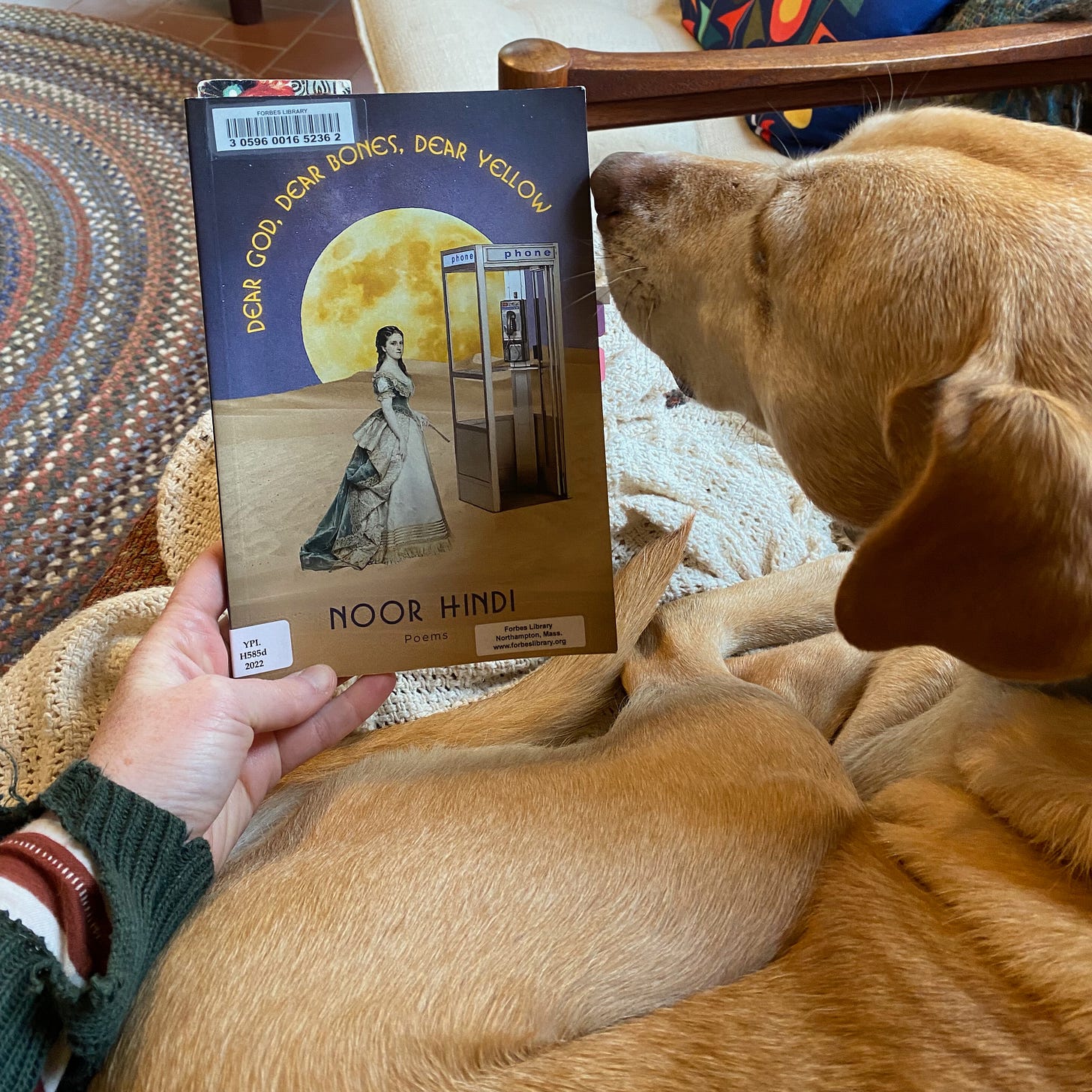
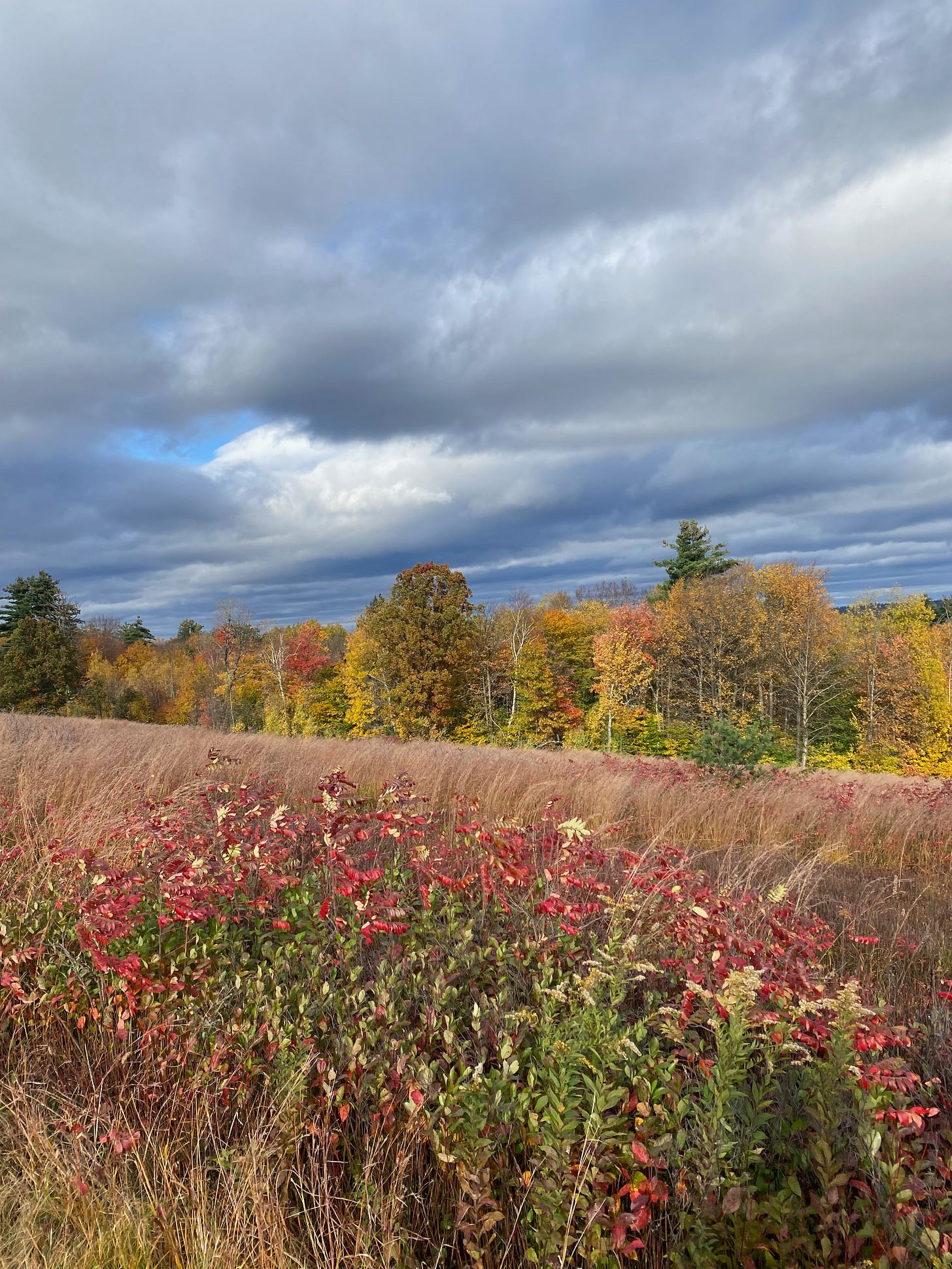
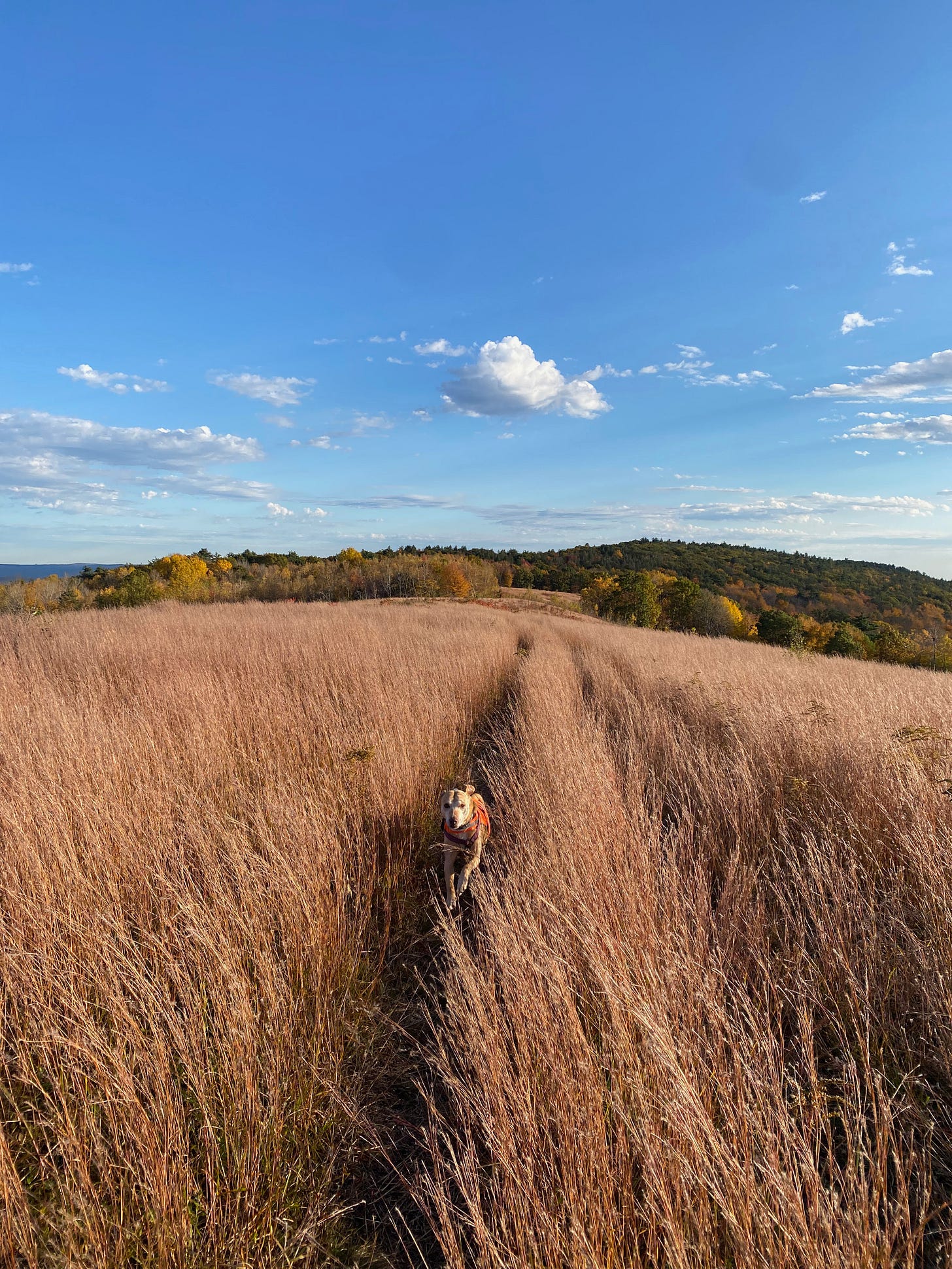
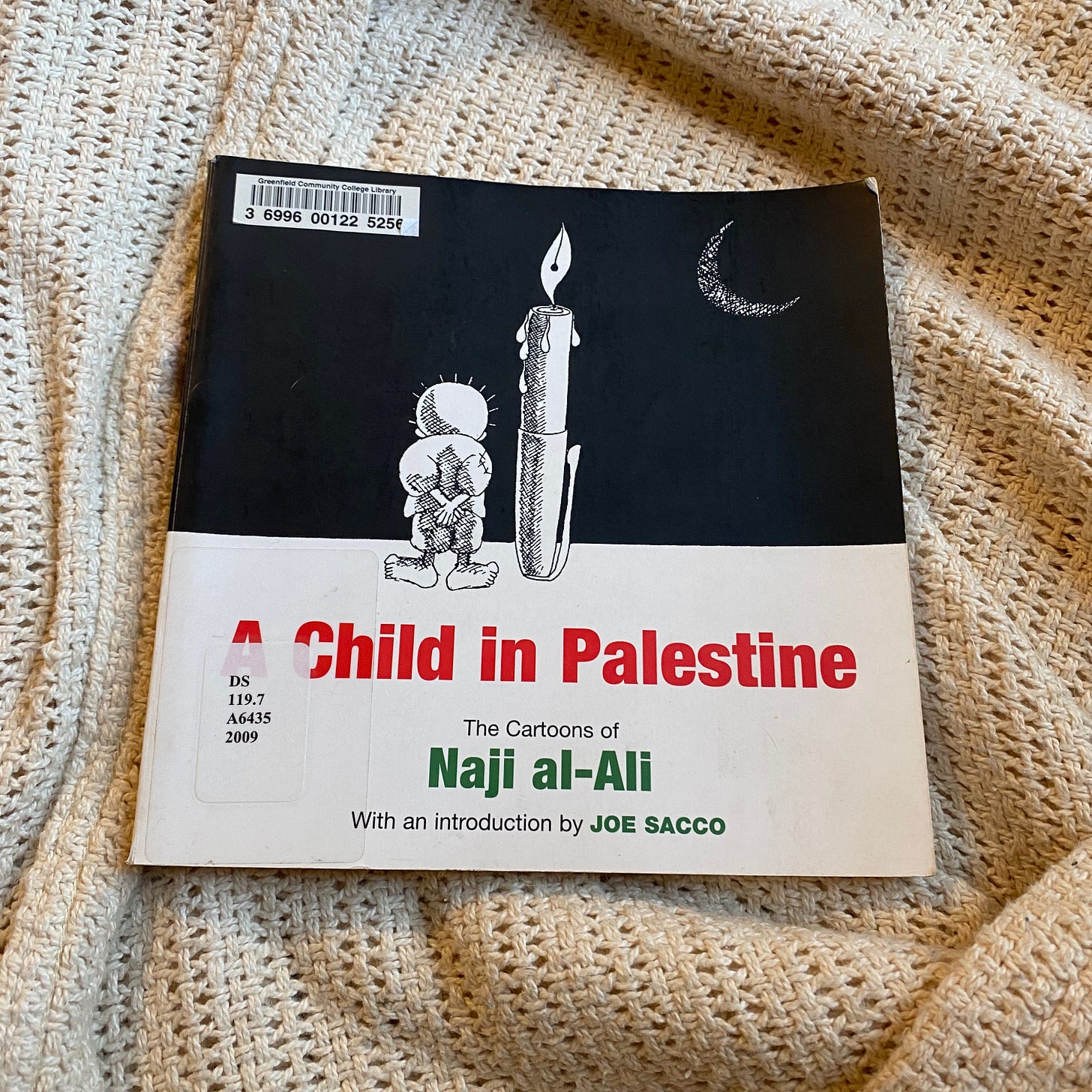
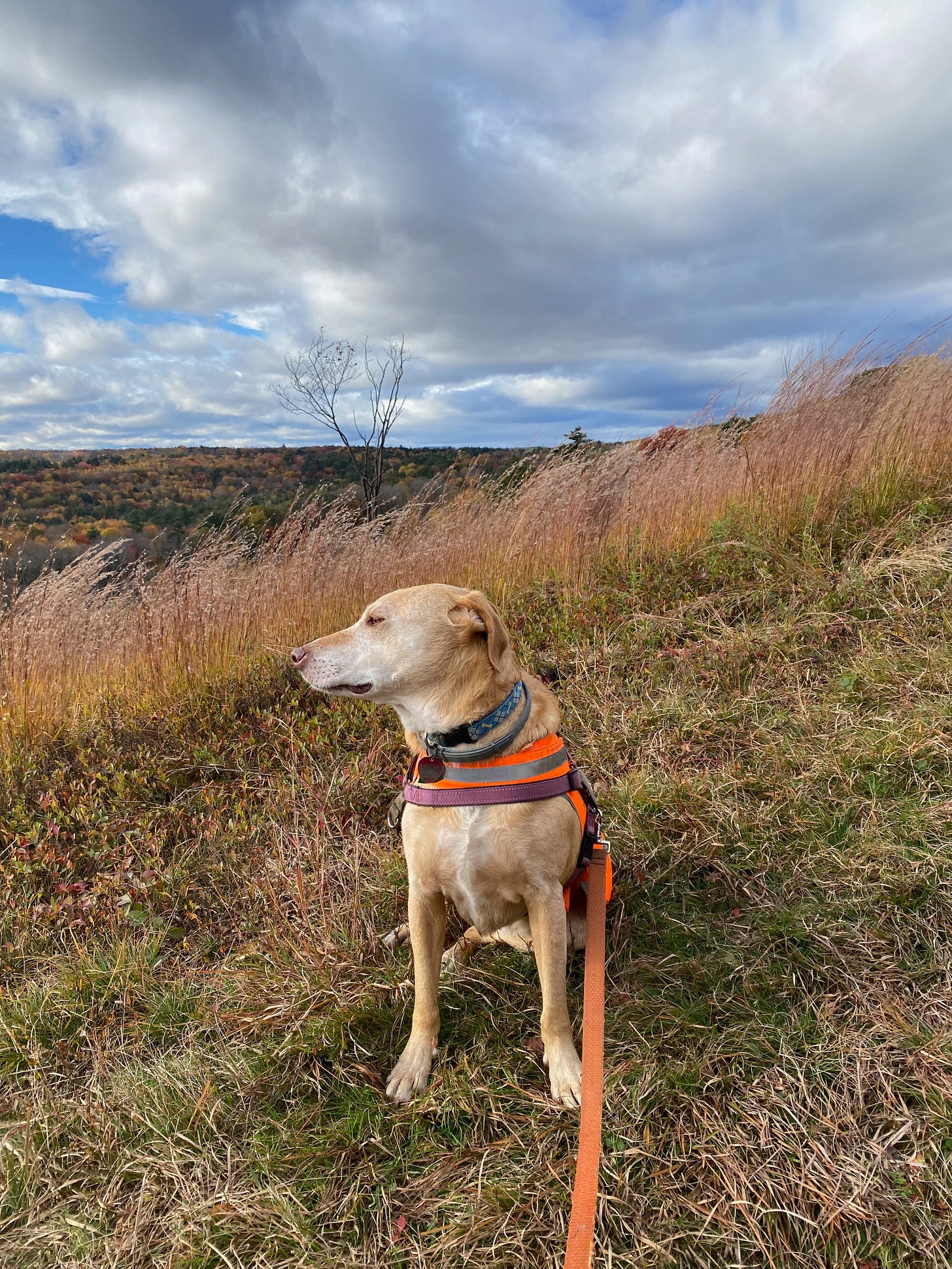
What a beautiful piece Laura. And such beautiful photos! Thank you for sharing all the emotions of October with us 💚
This was 💖💖💖, as always. Thank you for sharing your thoughts and space